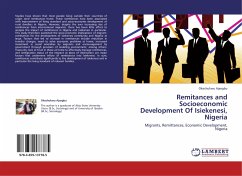Research shows that students coming from low socio-economic status (SES) families tend to perform worse in school than their peers from high SES families. The gap in academic achievement by SES has lasting consequences. In systems with school tracking, low SES students are usually placed in lower academic tracks. Later on, after school, they are less likely to enroll in college. And, as adults, they are less successful in the labor market. As a result, SES is passed on from parents to children. The studies in this book attempt to reveal some of the mechanisms underlying the reproduction of SES over the course of schooling. Using longitudinal datasets from Canada, Germany and the US, the author examines how and why the SES gap changes as students get older. The results suggest that education and merits are not sufficient for socio-economic success. Educational choices and institutional arrangements can actually widen the gap at transitional points. But certain educational structures can also contribute reducing the SES gap.
Bitte wählen Sie Ihr Anliegen aus.
Rechnungen
Retourenschein anfordern
Bestellstatus
Storno








